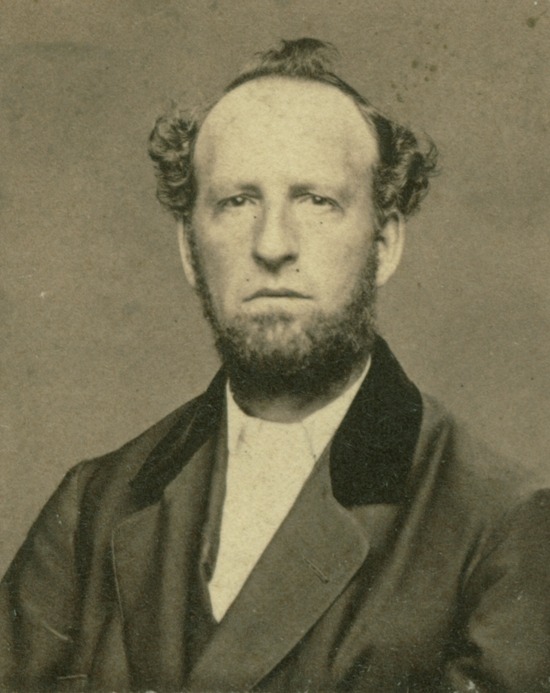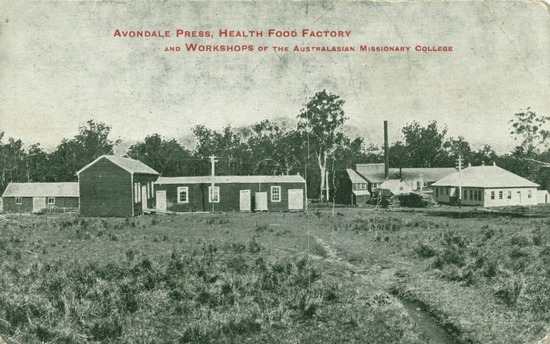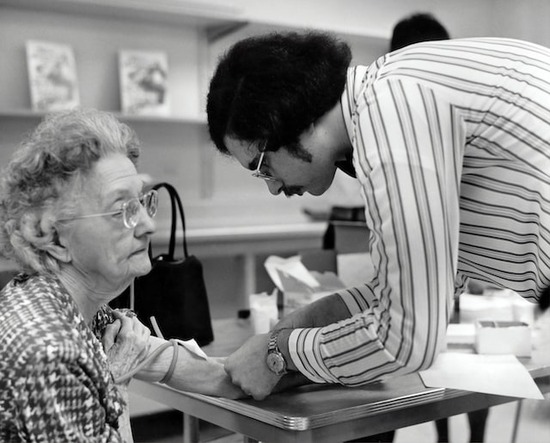Among this mix of ideas, the Seventh-day Adventist Church had a voice of clarity with the inspired counsel of Ellen White. Her simple teachings on health were revolutionary in how they cut through the varying opinions, and they have since stood the tests of time and science. Many of these teachings came from visions she received from the Holy Spirit, revealing ways to foster a healthy, balanced community. To get a better understanding of the visions she had and how the information was put to the test, we’ll answer the following questions:
- What were Ellen White’s health visions about?
- What was each vision like?
- What books resulted from these visions?
- What can we learn about health from them?
What were Ellen White’s health visions about?
Ellen White had four visions on the subject of health—in 1848, 1854, 1863, and 1865. Through them, the Holy Spirit showed her the impact of physical health on spiritual and mental well-being. The visions also revealed important (but often neglected) lifestyle principles and called Jesus’ followers to reflect His healing ministry through health education and medical work.
Adventists refer to this counsel as the “health message” or “the laws of health.”
The context of the visions
Ellen White received her visions when most of society was confused about health and medicine. Her messages—revolutionary at the time—helped Adventists break through this confusion.
Here’s some background.
In the early 1800s, medical practices had little scientific backing and often did more harm than good. Many doctors believed that they could heal sickness by breaking the body down and then building it back up. To do so, they resorted to bloodletting, purging, or treating various ailments with mercury, arsenic, opium, or calomel.2
They even thought tobacco would heal the lungs!3
Health was a struggle in the Seventh-day Adventist Church too, even among its leaders. Some of them drank alcohol and smoked tobacco.4 One leader, J. N. Andrews, described his diet: pork in various forms, sausage, donuts, biscuits, and old cheese.5
Within this context, Ellen White’s counsel seemed crazy. Turns out, it was just far ahead of its time.
The purpose of the visions6
Ellen White’s visions offer a wholistic approach to health and frame it within the mission of the Adventist Church.
They show that God wants to heal us physically, mentally, and spiritually so we can live our best lives and serve Him most effectively. Health is one way that the Adventist Church can fulfill its mission to “give glory” to God (Revelation 14:7; 1 Corinthians 10:31).
And through the health message, we aim to reflect Jesus’ work of relieving suffering and sharing spiritual truth.
What was each vision like?
Ellen White received four visions that addressed health topics. We’ll touch on the main points of each.
First health vision (1848)7

Photo by Sahand Hoseini on Unsplash
In Ellen White’s first vision about health, the Holy Spirit showed her the dangers of tobacco, as well as the negative effects caffeine can produce.
She warned about tobacco’s harmful effects on mental and spiritual health, specifically mentioning its addictive nature. It could even be something that could stand in the way of someone’s relationship with God.
Second health vision (1854)
The second vision addressed basic hygiene and keeping the home clean. It also brought out the benefits of a simple diet, as opposed to “rich” food (such as cakes, pies, pastries, spicy and highly seasoned foods, cheese, butter, and condiments).
Ellen White’s record of the vision was published in a manuscript.
Third health vision (1863)

Courtesy of the Ellen G. White Estate, Inc.
Ellen White’s most comprehensive health reform vision took place in Otsego, MI, and lasted 45 minutes. It emphasized the link between health and spiritual life, while also covering principles for healthful living.
God gave this message to her at a time when her husband James White was depressed, sick, and bordering on burnout.8 About two-thirds of it was counsel for the two of them.
Counsel such as:
“I saw that now we should take special care of the health God has given us, for our work was not yet done.
“Especially should we turn our attention to our health, and take time to devote to our health that we may in a degree recover from the effects of overdoing and overtaxing the mind.”9
The rest of the vision dealt with general health principles, which she recorded in chapter 39 of Spiritual Gifts, volume 4a.
Here’s a brief overview of them:
- The connection of health to the spiritual life
- The link between lifestyle and disease
- The negative effects of alcohol, tobacco, stimulating drinks, and rich food
- Temperance (self-control) in every aspect of life—eating, drinking, and working
- A simple vegetarian diet
- Avoidance of unclean meat, such as pork, per Leviticus 11
- Cleanliness and hygiene
- The healing power of exercise, pure water, fresh air, and sunlight
- The dangers of recreational drugs (particularly those used in Ellen White’s time)
- The power of the mind and the importance of a positive attitude
- The role of health reform in the Adventist mission
Fourth health vision (1865)
Ellen White’s fourth and final health vision was a call from God for Adventists to start their own center for promoting health principles and helping sick people recover.
But why did Adventists need their own health center?
James and Ellen White had spent time at a health center in Dansville, New York, after James had a stroke. This center promoted many concepts that Adventists believed in: a vegetarian diet, abstinence from alcohol and tobacco, and the use of hydrotherapy (treatments with water).
But Ellen White was concerned about some aspects of the program, particularly the disconnect between religious faith and healing.
Adventists needed a place where they could care for the sick and teach health reform in the context of their beliefs.10 This led to the establishment of the Western Health Reform Institute (later known as Battle Creek Sanitarium).
What books resulted from Ellen White’s visions about health?
As Ellen White received insight on various topics of health, she began writing them down in articles and pamphlets so they could be shared with others. Eventually, those small pieces became larger books. Here are the original writings based on her health visions:
- An Appeal to Mothers (1864)
- “Health,” Spiritual Gifts, volume 4a (1864)
- “Disease and Its Causes” in the booklet Health, or How to Live (1865)
- Christian Temperance and Bible Hygiene (1890)
In 1905, she compiled her teachings on health and wellness into the expansive book, The Ministry of Healing.
And in 1897, a doctor named David Paulson compiled a concise overview of her health teachings in a book called, Healthful Living.
Other compilations—put together by the trustees of the Ellen G. White Estate after her death—are:
- Counsels on Health (1923)
- Medical Ministry (1932)
- Counsels on Diet and Foods (1938)
- Temperance (1949)
What can we learn from Ellen White’s visions about health?11
Ellen White’s visions provide practical principles for healthful living, which Adventists refer to as the health message. We continue to follow these principles with even greater confidence because of how science backs them today.
Let’s look at some key principles:
Whole-person health
In her visions, Ellen White saw the relationship between physical, mental, and spiritual health. The way we care for our bodies affects our minds and our relationship with God.
“The relation which exists between the mind and the body is very intimate. When one is affected, the other sympathizes. The condition of the mind affects the health of the physical system.”12
A plant-based diet and avoidance of pork

Photo by Nathan Dumlao on Unsplash
When it comes to diet, “grains, fruits, nuts, and vegetables constitute the diet chosen for us by our Creator. These foods, prepared in as simple and natural a manner as possible, are the most healthful and nourishing.”13
Science bears this out by showing how a plant-based diet helps prevent chronic diseases—cancer, diabetes, and more.14
Notice how physician and author Dr. Greger responded when asked what a diet protective against disease looks like:
“It is a diet that minimizes the intake of meat, eggs, dairy, and junk and maximizes a diet of fruit, vegetables, whole grains, legumes or beans, peas, chickpeas, lentils, nuts, seeds, herbs, spices, and mushrooms—basically real food that grows out of the ground not in a factory. Those are our healthiest choices.”
Sounds similar to what Ellen White wrote, doesn’t it?
He points out the modern research on the dangers of pork too:
“So, how contaminated is the U.S. pork supply? Consumers Union tested nearly 200 pork samples from cities across the country, and found more than two-thirds contaminated with Yersinia—90% of which were resistant to one or more antibiotics.”
And to think that Ellen White wrote this over 150 years ago:
“Pork, although one of the most common articles of diet, is one of the most injurious. God did not prohibit…eating swine’s flesh merely to show His authority, but because it was not a proper article of food for man.”15
Harmful substances and activities
Ellen White’s warnings against harmful substances and activities are still relevant today.
These include:
- Smoking/tobacco: “Tobacco is a poison of the most deceitful and malignant kind, having an exciting, then a paralyzing, influence upon the nerves of the body. It is all the more dangerous because its effects upon the system are so slow, and at first scarcely perceivable.”16
- Alcohol: “The effect of intoxicating liquors is to weaken the body, confuse the mind, and debase the morals.”17
- Overwork: “We should practice temperance in our labor. It is not our duty to place ourselves where we shall be overworked. Some may at times be placed where this is necessary, but it should be the exception, not the rule.”18
- Overeating: “There is evil in overeating of even healthful food… If we overeat, the brain power is taxed to take care of a large quantity of food that the system does not demand, the mind is clouded, and the perceptions enfeebled.19
- Poor hygiene: “Strict habits of cleanliness should be observed. Many, while well, will not take the trouble to keep in a healthy condition. They neglect personal cleanliness, and are not careful to keep their clothing pure. Impurities are constantly and imperceptibly passing from the body, through the pores, and if the surface of the skin is not kept in a healthy condition, the system is burdened with impure matter.”20
Natural remedies

Photo by West Kenya Union Conference Adventist Media on Unsplash
Ellen White wrote, “Pure air, sunlight, abstemiousness [self-control], rest, exercise, proper diet, the use of water, trust in divine power—these are the true remedies.”21
Though she didn’t discount medical interventions, she taught that we need to get to the root of sickness—often lifestyle habits—instead of merely fighting symptoms. Today, the medical community recognizes this link between lifestyle and disease.
Dr. Josh Axe, a well-known doctor of natural medicine, chiropractor, and clinical nutritionist, points out this exact same principle:
“I think the single most important question to ask your doctor is, ‘What is the root cause of my condition?’”
To learn more about these natural remedies, see our article on the NEWSTART acronym for healthful living.
A positive attitude
Because of the strong mind-body connection, attitude plays an important role in healing. This is why God gave the following counsel to James and Ellen White:
“We should encourage a cheerful, hopeful, peaceful frame of mind, for our health depends upon our doing this.”
We now know that a positive mindset boosts recovery from injuries or illness.
Mission to share the health message

Courtesy of the Ellen G. White Estate, Inc.
Health ministry is an important emphasis in the Adventist Church because of Ellen White’s counsels. In every way, Adventists want “to make the world better for their having lived in it.”22
How?
One way is by connecting the Bible’s principles with healing, like Jesus did. Every member can be a medical missionary by understanding the body and learning how to use natural remedies.23
Ellen White also urged the church to establish:
- Health food stores and manufacturers
- Vegetarian restaurants
- Health centers
- Health training facilities
- Clinics
Through these “centers of influence,” she envisioned doctors, pastors, and church members working together to provide health education and healing.24
Is following the health message a way of earning salvation?
No, following the health message is not about earning salvation or favor with God. Instead, Adventists see healthful living as a way to honor God and best fulfill their mission in this world.
Convictions about health are personal. We shouldn’t judge someone’s character or relationship with God based on their health.
And even Ellen White did not set herself as a standard for others. She encouraged people to prayerfully evaluate God’s Word and health counsel to know how they can be the best stewards of their bodies.
Want to put these health principles to the test?
God cares that we are in good health. That’s why He used Ellen White’s counsels to direct people back to a simple, biblical philosophy of health.
And today, science agrees, giving us greater confidence in what God says!
Adventists value this health message because it not only benefits our personal lives but also draws us closer to Jesus and shapes our mission to tell people about Him.
And God can use it to shape your life, too! Why not give Ellen White’s teachings a try and see how it might benefit your own health.
- Bigelow, Jacob, M.D., Brief Exposition of Rational Medicine (Philips, Samson, and Co., Boston, 1858), pp. 62–63. [↵]
- Robinson, Doris, The Story of Our Health Message (Southern Publishing Association, Nashville, TN, 1965), pp. 17–22. [↵]
- Douglass, Herbert, Messenger of the Lord (Nampa, Idaho, Pacific Press, 1998), p. 289. [↵]
- Robinson, pp. 63–64. [↵]
- Ibid., p. 26. [↵]
- “Health Reform,” Fortin and Moon, The Ellen G. White Encyclopedia (Review and Herald, Hagerstown, MD, 2014). [↵]
- Robinson, pp. 65–66. [↵]
- Ibid., p. 76. [↵]
- White, Ellen, Manuscript 1, 1863. [↵]
- Purpose and Objectives of Seventh-day Adventist Institutions, p. 64–69. [↵]
- Levterov, Theodore, “The Ministry of Healing,” Encyclopedia of Seventh-day Adventists, Jan. 29, 2020. [↵]
- Counsels on Health, p. 28 [↵]
- White, Ellen, The Ministry of Healing (Pacific Press, Mountain View, CA, 1905), p. 296. [↵]
- Miles et. al., “Plasma, Urine, and Adipose Tissue Biomarkers of Dietary Intake Differ Between Vegetarian and Non-Vegetarian Diet Groups in the Adventist Health Study-2,” The Journal of Nutrition, vol. 149(4), April 2019, pp. 667–675. [↵]
- White, Ellen, Counsels on Diet and Foods (Review and Herald Publishing Association, Washington, D.C., 1938), p. 392. [↵]
- White, Ellen, Spiritual Gifts, vol. 4a (Seventh-day Adventist Publishing Association, Battle Creek, MI, 1864), p. 128. [↵]
- White, Ellen, Temperance (Pacific Press, Mountain View, CA, 1949), p. 268. [↵]
- Ibid., p. 139. [↵]
- White, Ellen, Healthful Living (Medical Missionary Board, Battle Creek, MI, 1897), p. 88. [↵]
- Ibid., p. 143. [↵]
- White, The Ministry of Healing, p. 27. [↵]
- Ibid., p. 398. [↵]
- White, Ellen, Testimonies for the Church, vol. 7 (Pacific Press, Mountain View, CA, 1902), p. 62. [↵]
- White, Ellen, Counsels on Health (Pacific Press, Mountain View, CA, 1923), p. 493. [↵]
Related Articles
More Answers
8 Pieces of Advice from Ellen White’s Counsel for Families
8 Pieces of Advice from Ellen White’s Counsel for FamiliesFamily—it can be the source of the most wonderful and frustrating parts of life. And it’s in the family that individuals develop their identities and learn the behaviors that either propel them forward or...
Ellen White’s Visions and Prophecies
The New Testament upholds prophecy as a spiritual gift that will continue to the end of time (Ephesians 4:11–14).
Ellen G. White’s Counsel on College Education
Ellen G. (Harmon) White, a significant co-founder of Adventism, is often known for her practical and spiritual guidance for proper childhood education. But she was also significantly involved in the development of Seventh-day Adventist higher education.
Ellen G. White or the Bible—Which is More Important to Adventists?
The Bible—without a shadow of a doubt—is the most important book. It’s the standard we use to test all other writings, including those of Ellen White.
Do Adventists Worship Ellen White?
Ellen White was a co-founder and leader in the Seventh-day Adventist Church from its beginning. Adventists believe that she had the prophetic gift (Ephesians 4:14; 1 Corinthians 12:28) and passes the biblical tests of a prophet.
Ellen White and the Sabbath
The Sabbath is an important topic in the Seventh-day Adventist Church. It shouldn’t surprise you, then, that Ellen G. White, a co-founder of the church, studied the Bible’s teachings on the Sabbath and wrote large amounts about it.
Are Any of Ellen G. White’s Prophecies Yet to Come True?
Yes. Some prophesied events have yet to happen. Ellen White, a co-founder of the Seventh-day Adventist Church, demonstrated many times over that she had the spiritual gift of prophecy (1 Corinthians 12, 14). Some of her predictions’ timelines have already passed, and those prophecies have been fulfilled.
What Ellen G. White Said About Using the Bible in Education
Ellen White, one of the founders of the Seventh-day Adventist Church, believed that education was not complete unless it was founded upon the principles of the Bible.
Ellen G. White’s Counsel on Christian Education
Ellen White, a co-founder of the Seventh-day Adventist Church, saw that the educational system during her time was lacking and looked for ways to improve it—not only in the United States but throughout the world. And as part of her life of ministry, she sought out practical ways to be better stewards of our minds, bodies, and the lives we’re given.
What Was Ellen G. White’s Counsel on Music?
At its core, music is a collection of tones, sounds, and rhythms that creates a melody. It’s also much more than that.
Ellen White’s Spiritual Counsel on Marriage
As one of the founders of the Seventh-day Adventist Church, Ellen G. White was held in high regard. She was a prolific author and was heavily engaged in the mission of the denomination, prayerfully pursuing the guidance of the Holy Spirit.
Were All Ellen White’s Books Inspired?
As the most translated female author in the world, Ellen White wrote numerous books, articles, pamphlets, and more. These writings focused on developing Christian character, emphasizing Bible truth, practical tips for living well and staying healthy, and discussing effective methods of delivering the gospel message to the world.
What is the Spirit of Prophecy?
The Spirit of Prophecy, one of the spiritual gifts of the Holy Spirit, is described as “the testimony of Jesus” (Revelation 19:10) and, according to Belief 18 of the 28 Adventist Fundamental Beliefs about Scripture, it will be one of the distinctive characteristics of the remnant of devout believers in the end times (1 Corinthians 14:1-5; Revelation 19:10; Revelation 12:17).
How Ellen White Influenced the Adventist Health Message
Seventh-day Adventists are known for their emphasis on healthy living. And Ellen G. White was a significant influence in the development of this priority and practice among Adventists.
What Did Ellen White Say About End-Time Prophecy?
We can read in Scripture about the series of events and signs that lead up to the second coming of Jesus Christ. And it sounds pretty intense, to say the least. The symbolic nature of the language of prophecy also can make things tricky to understand at first.
What Were Ellen White’s Visions About the Adventist Church?
Led by the Holy Spirit, Ellen G. White was given many messages, counsel, revelations, and visions about the Bible, history, prophecy, and how we can apply biblical principles to our daily lives.
Ellen G. White’s Travels and Worldwide Mission
Though Ellen White, a co-founder of the Seventh-day Adventist Church, is best known for her ministry in the United States, she also traveled to twelve other countries in her lifetime—a big accomplishment in the 19th century when travel was strenuous and long.
Were All Ellen White’s Visions About the Future?
While the visions God gave Ellen White were often about the distant future or last-day events, she had many others that addressed different topics. They may not be discussed as much as her visions about the Second Coming or the End Times, but they tackled some timely topics for her day.
Ellen White and Adventist Healthcare—Ahead of Their Time
Medical care in the mid-1800s was primitive, to say the least. Basic concepts we take for granted—such as proper handwashing or recognizing the dangers of bloodletting—were nonexistent. And doctors often had little more than nine months of training!
What is the Spirit of Prophecy (Books 1–4) by Ellen G. White?
Applying biblical prophecy to history, recent events, and especially the future, can be a daunting task. Even a little scary for some. But even so, we can’t help but want to know more. We want to be prepared—to feel like we know how to weather the storm.
What Did Ellen White Teach About Vegetarianism?
One thing you might have heard about Seventh-day Adventists is their emphasis on a vegetarian lifestyle. If you’re wondering why that is, it goes back to our church’s humble beginnings:
What Does Ellen White Say About Prayer?
Have you ever had a burden you just had to tell someone, but you were afraid of being judged if you did? Ellen G. White, an important figure in the Seventh-day Adventist Church and a prolific writer, described prayer as talking to God in a personal way—He’s the friend we can tell everything to.
Who Were Ellen White’s Children?
Being the children of a woman with a prophetic calling from God had its blessings and its challenges.
In this overview, we’ll look at the highlights of the lives of Ellen White’s sons during her many years of ministry, as well as the ways each of them decided to serve Jesus Christ:
Steps to Christ: A Guide to a Relationship with Jesus
Whether you’re just starting your journey with Jesus Christ, are coming back after some time away, or have had a relationship with Jesus for years, using a book—in addition to the Bible—to guide or supplement that relationship can be helpful, comforting, and joyful.
How Can I Know Ellen White’s Messages Were From God?
It’s natural to be a bit skeptical when you hear about someone being “divinely inspired,” or that something is a “message from God,” etc. And we expect nothing different if you’re hearing about Ellen White, an influential co-founder of the Seventh-day Adventist Church, for the first time. After all, the Bible tells us that we’re supposed to test these things!
Was Everything Ellen White Said Divinely Inspired?
The Seventh-day Adventist Church believes that many of Ellen White’s messages were inspired by God. But that doesn’t mean everything she ever said was prophetic, or meant to be taken as direct instruction from God.
Ellen White and the Great Controversy
The Great Controversy is a book written by Ellen G. White, a co-founder of the Seventh-day Adventist Church. Written in the late 1800s, the book is the last in a series and describes the connection between Bible prophecy and post-biblical history. It also discusses factors that will characterize last-day events.
Was Ellen G. White Really a Prophet?
Seventh-day Adventists believe that Ellen G. White fits the Bible’s definition, description, and criteria of a true prophet. Her words and deeds have stood the test of time and always glorified God and the Bible above all else.
How Did Ellen G. White Help Found the Adventist Church?
Ellen G. White, a humble woman from Gorham, Maine, was a co-founder of the Seventh-day Adventist Church and a key leader in it from its very beginning. Following the Holy Spirit’s guidance at a young age, she dedicated herself to studying Scripture and became involved in the Advent Movement.
Didn’t find your answer? Ask us!
We understand your concern of having questions but not knowing who to ask—we’ve felt it ourselves. When you’re ready to learn more about Adventists, send us a question! We know a thing or two about Adventists.
































